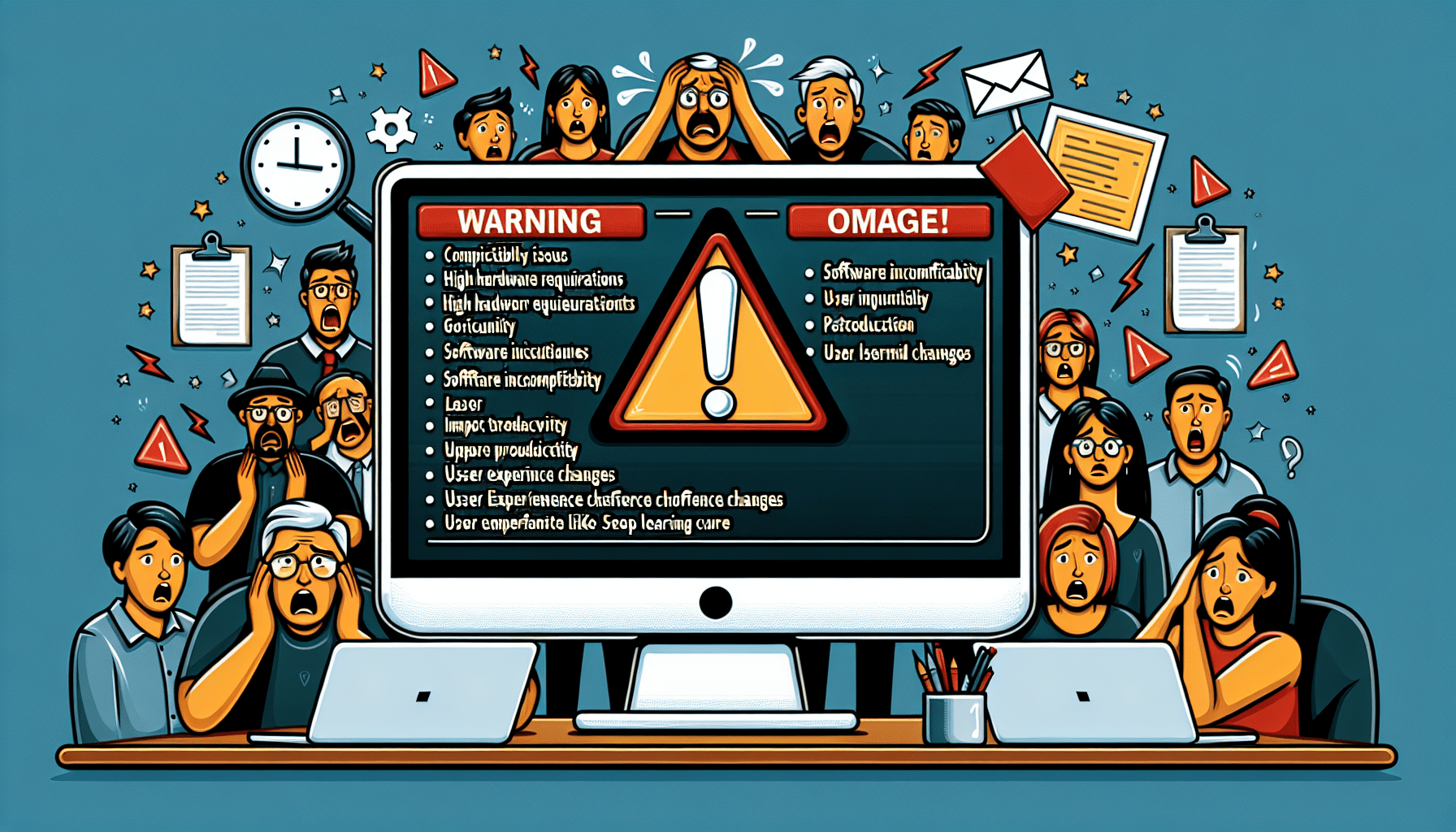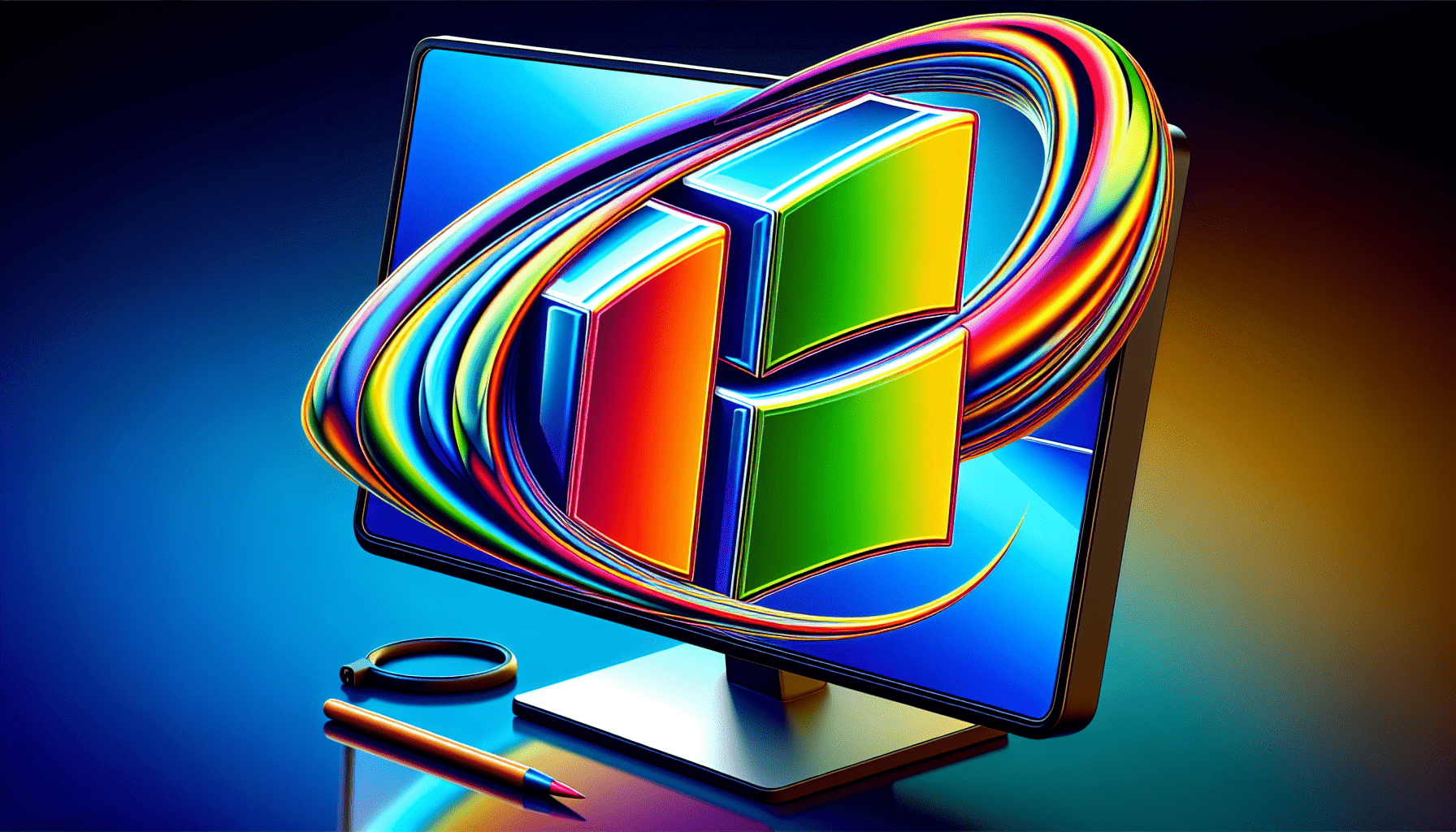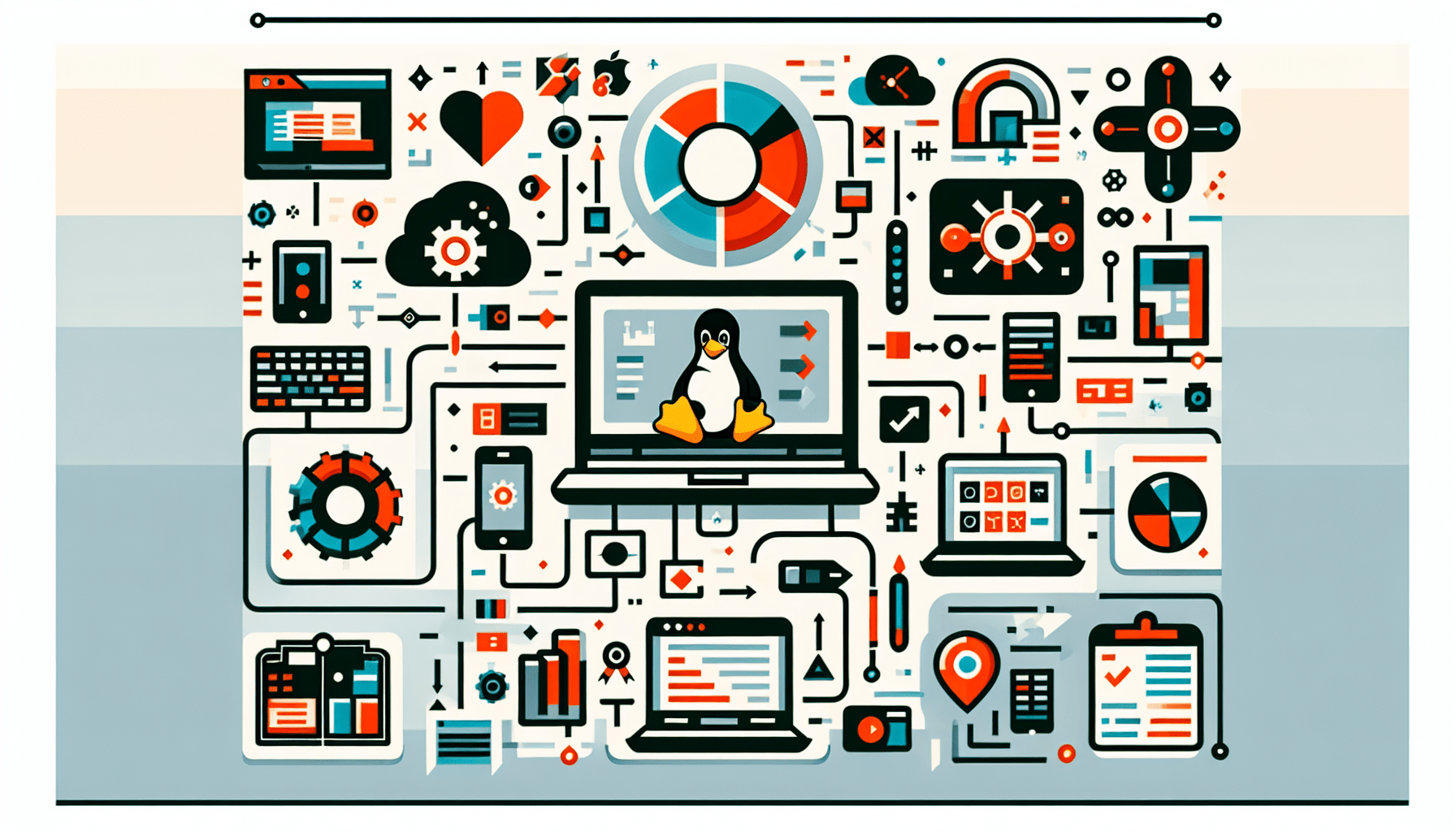







If you find yourself pondering whether or not to invest in the paid version of antivirus software, this article is here to provide some guidance. With the ever-growing threat of online viruses, malware, and phishing attacks, safeguarding your digital devices has never been more crucial. In this article, we will explore the benefits of purchasing the paid version of antivirus software and help you make an informed decision about protecting your valuable data and online security.
Understanding Anti-Virus Software
Definition of Anti-virus software
Anti-virus software, also known as anti-malware software, is a program designed to detect, prevent, and remove malicious software from your computer or device. It acts as a shield against various types of threats such as viruses, worms, trojans, ransomware, spyware, and adware. By regularly scanning your device and monitoring for suspicious activities, anti-virus software helps to keep your system safe and secure.
How anti-virus software works
Anti-virus software works by using various techniques to identify and eliminate threats. These techniques include signature-based detection, behavior-based detection, heuristic analysis, sandboxing, and real-time scanning. Signature-based detection compares files and programs on your device to a database of known malware signatures. Behavior-based detection focuses on identifying suspicious behavior and actions that may indicate the presence of malware. Heuristic analysis looks for patterns and characteristics commonly associated with malware. Sandboxing creates a safe environment to run potentially malicious programs and monitor their behavior. Real-time scanning continuously scans files and web traffic in real-time to detect and block threats before they can harm your system.
Importance of having an anti-virus software
Having anti-virus software installed on your device is crucial to protect your personal information, sensitive data, and overall system health. With the rapid increase in cyber threats, it is essential to have a robust defense mechanism. Anti-virus software acts as the first line of defense against various malware and other malicious activities. It helps to prevent unauthorized access, data breaches, and financial losses. Additionally, anti-virus software safeguards your device’s performance by detecting and removing unwanted programs and optimizing system resources. By investing in anti-virus software, you are taking a proactive step towards ensuring the security and longevity of your device.
Free Vs. Paid Anti-Virus Software
Understanding the basics of free anti-virus software
Free anti-virus software, as the name suggests, is available at no cost. It offers essential protection against common threats and includes features such as real-time scanning, malware detection, and removal. While free anti-virus software can provide a certain level of security, it may have limitations in terms of advanced features, technical support, and updates. It is important to note that free versions often come bundled with advertisements or additional software, which can be a downside for some users.
Exploring the components of paid anti-virus software
Paid anti-virus software offers a more comprehensive and feature-rich solution compared to its free counterparts. It includes advanced features like firewall protection, email scanning, password managers, secure web browsing, and identity theft protection. Paid versions often provide enhanced real-time scanning, improved threat detection algorithms, and more frequent updates. Additionally, paid anti-virus software typically offers dedicated technical support to assist users in case of any issues or queries.
Main differences between free and paid versions
The main differences between free and paid anti-virus software lie in the level of protection, additional features, technical support, and updates. While free versions provide basic protection, paid versions offer advanced security measures to combat evolving threats. The additional features in paid software enhance the overall security and user experience. Technical support is more readily available for paid users, ensuring prompt assistance in case of any concerns. Paid software also tends to provide more frequent updates, maintaining an effective defense against newly emerging threats. However, it is important to assess your specific needs and budget before deciding whether to invest in a paid version or rely on the free alternative.

Security Features
Security offerings in free anti-virus software
Free anti-virus software provides essential security offerings that help protect your device from common threats. These include real-time scanning, malware detection and removal, and basic firewall protection. Some free versions also offer web protection, email scanning, and automatic updates. While the level of security may not be as comprehensive as in paid software, these offerings still provide a baseline defense against many types of malware.
Detailed description of security features in paid anti-virus software
Paid anti-virus software offers an extensive range of security features to provide advanced protection for your device. These features may include real-time scanning with enhanced detection algorithms, proactive behavior monitoring, network protection, secure web browsing, email and attachment scanning, and identity theft protection. Paid software often includes additional tools such as password managers, file encryption, and secure online banking features. With these comprehensive security offerings, paid anti-virus software aims to offer a more robust defense against both known and emerging threats.
Comprehensive comparison between free and paid security features
When comparing the security features of free and paid anti-virus software, it becomes evident that paid versions offer a more comprehensive and layered defense mechanism. While free software covers basic security needs, paid software adds advanced features and technologies to combat more advanced malware and cyber threats. The additional security layers in paid software provide better protection against zero-day exploits, ransomware attacks, and phishing attempts. However, it is important to note that free anti-virus software still provides a certain level of security, making it a viable option for users with limited security needs or budget constraints.
Efficiency in Virus Detection and Removal
Efficacy of free anti-virus in detection and removal of threats
Free anti-virus software can effectively detect and remove many types of common malware. However, it may have limitations in detecting zero-day exploits and newly emerging threats. The detection rates and efficiency of free software can vary depending on the specific program and its capabilities. Some free versions may not offer the same level of real-time protection, behavioral analysis, or advanced scanning techniques as their paid counterparts. Therefore, while free anti-virus software can provide a certain level of security, it is recommended to complement it with safe browsing habits and regular system scans for optimal protection.
Efficiency of paid anti-virus in handling threats
Paid anti-virus software often exhibits higher efficacy in detecting and removing threats compared to free software. The advanced detection algorithms, real-time scanning, and behavioral analysis employed by paid software enhance the ability to identify and eliminate both known and emerging threats. The proactive nature of paid software helps in detecting suspicious activities and potential malware even before they can cause harm. With more frequent updates and improved threat intelligence, paid software ensures a higher level of efficiency in handling various types of threats.
Study comparing detection and removal rates between free and paid software
Several studies and independent tests have been conducted to compare the detection and removal rates between free and paid anti-virus software. These studies generally indicate that paid versions tend to perform better in detecting and removing threats. The advanced techniques, frequent updates, and additional security layers in paid software contribute to higher detection rates and quicker response times to new threats. However, it is important to note that the performance of specific anti-virus software can vary, and the efficacy of any software can be influenced by factors such as system configuration, user behavior, and the specific threat landscape.

Technical and Customer Support
Level of support offered with free anti-virus software
Free anti-virus software typically offers limited or no technical support to its users. Since free versions are provided at no cost, the resources allocated for customer support are usually limited. Users of free software may only have access to self-help resources such as forums, knowledge bases, and FAQs. While these resources can be helpful, they may not provide instant or personalized assistance to address specific concerns or issues.
Extent of customer and technical support in premium software
Premium or paid anti-virus software typically offers dedicated customer and technical support services. Paid software companies often provide prompt assistance through various channels such as phone support, live chat, and email support. This level of support ensures that users can reach out to experts for guidance, troubleshooting, and resolution of any problems they may encounter. With paid software, users can rely on their software provider to promptly address any issues, provide guidance on best practices, and offer personalized recommendations.
Importance of having reliable support
Having reliable support is crucial when it comes to anti-virus software. In case of any technical issues, questions, or concerns, having professional assistance can make a significant difference. Reliable support helps users navigate through complex settings, optimize their software’s performance, and ensure proper configuration for maximum security. Additionally, support services can provide peace of mind, knowing that there is a dedicated team available to assist in case of emergencies or unusual events. While free anti-virus software may not offer robust support services, the availability of reliable support is one of the advantages of investing in paid anti-virus software.
Cost Analysis
Cost of free anti-virus software
Free anti-virus software, as the name suggests, does not incur any direct cost for the user. It can be downloaded and used without any upfront payment. However, it is important to note that free versions may include advertisements, bundled software, or limited features, which can sometimes impact the user experience. While free software can provide a certain level of security, users should consider the potential trade-offs and limitations when opting for a free solution.
Price ranges for paid anti-virus software
Paid anti-virus software usually comes with a price tag, and the cost can vary depending on the product, features, and subscription plans. Prices can range from around $20 to $100 or more per year, depending on factors such as the number of devices covered, additional features included, and the reputation of the software provider. Some providers also offer multi-year subscriptions or discounts for longer-term commitments. It is essential to carefully evaluate the pricing and features of different paid software options to choose the one that best fits your budget and security needs.
Understanding the value for money proposition
When considering the cost of anti-virus software, it is essential to assess the value for money proposition. While paid software comes at a cost, the additional features, advanced security measures, frequent updates, and dedicated support offered by paid versions can outweigh the investment. Investing in a reliable anti-virus solution can help prevent potential financial losses, data breaches, and system failures. The value for money lies in the extended protection, peace of mind, and enhanced system performance that paid software can provide.

Software Updates
Frequency of updates with free software
Free anti-virus software may have less frequent updates compared to their paid counterparts. Since free versions are often provided at no cost, the resources allocated for continuous development and maintenance may be limited. This can result in less frequent updates to the malware signature database, security algorithms, and overall functionality. While free software providers do release updates, the frequency may not be as high as in paid software.
Exploring the regularity and quality of updates in paid software
Paid anti-virus software usually offers more frequent updates to address emerging threats and vulnerabilities. Software providers invest resources in continuous research, threat analysis, and development to provide timely updates to their paid users. These updates include not only the latest malware signatures but also enhancements to detection algorithms, security patches, and additional features. The regularity and quality of these updates in paid software contribute to a more effective defense against evolving threats.
Why timely software updates matter
Timely software updates are critical for maintaining a high level of security against ever-evolving threats. Cybercriminals constantly develop new malware and exploit vulnerabilities to target unsuspecting users. With each update, anti-virus software providers improve their software’s ability to detect and remove these threats. Regular updates ensure that your defense mechanisms are up to date and capable of handling the latest malware strains. By promptly installing updates, you minimize the window of vulnerability and enhance your device’s overall security.
User Experience
Interface and ease of use in free anti-virus software
Free anti-virus software typically offers a straightforward and intuitive user interface. The goal is to provide essential security features in a user-friendly manner. Users can easily navigate through the software, access necessary functions, and perform basic tasks such as initiating scans or managing quarantine. While the interface may not be as polished or visually appealing as in some paid software, free versions ensure ease of use for users of all technical levels.
User experience provided by paid anti-virus software
Paid anti-virus software often offers an enhanced user experience with a more polished interface and additional features. The paid versions prioritize ease of use while maintaining a professional and modern design. The user experience is carefully crafted to provide easy access to advanced settings, customization options, and additional security tools. The paid user experience aims to strike a balance between simplicity and flexibility, allowing users to tailor their security settings according to their needs.
The influence of user experience on software choice
User experience plays a significant role in software choice, including anti-virus software. The interface, ease of use, and overall usability contribute to user satisfaction and the efficiency of security measures. A clean and intuitive interface, coupled with smooth navigation and a well-organized feature set, enhances the overall user experience. While free versions may be more basic in terms of user experience, paid anti-virus software prioritizes user-friendly design and customization options to cater to a broader range of user preferences.
Impact on System Performance
How free anti-virus software impacts your device
Free anti-virus software, while effective in providing basic security, may have an impact on system performance. Some free versions can consume system resources or slow down the device, especially during scans or real-time monitoring. Depending on the specific software and its optimization, the impact can vary. However, it is important to consider the potential trade-off between security and system performance when opting for free anti-virus software.
Performance impact of paid anti-virus software
Paid anti-virus software is engineered to provide robust security without significantly impacting system performance. These software solutions are designed with optimization and minimal resource consumption in mind. Paid versions often offer advanced performance tuning options, allowing users to fine-tune the software based on their system specifications and preferences. With better resource management, paid software ensures efficient and effective protection while maintaining optimal system performance.
Comparing system performance between free and paid software
When comparing system performance between free and paid anti-virus software, paid versions generally exhibit better optimization and minimal impact on system resources. The additional features and advanced scanning techniques in paid software might have a slightly higher impact during resource-intensive operations like scanning, but this impact is often mitigated by the software’s optimization capabilities. While free software can provide adequate security, the performance-conscious user may find paid software to be a better choice.
Making the Final Decision
Factors to consider when choosing between free and paid
When making the final decision between free and paid anti-virus software, several factors should be taken into consideration. Your specific security needs, budget, desired features, technical support requirements, and performance optimization concerns all play a role in determining the best option for you. By evaluating these factors and understanding the trade-offs between free and paid versions, you can make an informed decision that aligns with your priorities and preferences.
Understanding your specific needs and circumstances
It is crucial to evaluate your specific needs and circumstances when considering anti-virus software. For basic security needs and limited budgets, free anti-virus software can provide adequate protection. However, if you require advanced features, frequent updates, proactive threat detection, and personalized technical support, investing in a paid version becomes more beneficial. Understanding your personal requirements, the sensitivity of your data, and the level of protection you desire will help guide your decision-making process.
Pros and cons of opting for free vs. paid anti-virus software
Opting for free anti-virus software comes with the advantage of no upfront cost, basic security features, and ease of use. However, it may have limitations in terms of advanced features, technical support, and updates. Paid anti-virus software offers a more comprehensive security solution with advanced features, frequent updates, and dedicated support. The trade-off is the cost associated with the investment. Assessing the pros and cons of both options will assist in determining whether the additional benefits of paid software outweigh the cost for your specific needs.
In conclusion, the decision to purchase the paid version of anti-virus software depends on various factors such as your security requirements, desired features, support needs, budget, and performance optimization concerns. While free anti-virus software can provide basic protection, paid versions offer advanced security measures, additional features, frequent updates, and dedicated support. By carefully evaluating these factors and understanding the trade-offs between free and paid options, you can choose the anti-virus software that best meets your specific needs and provides optimal protection for your device.





